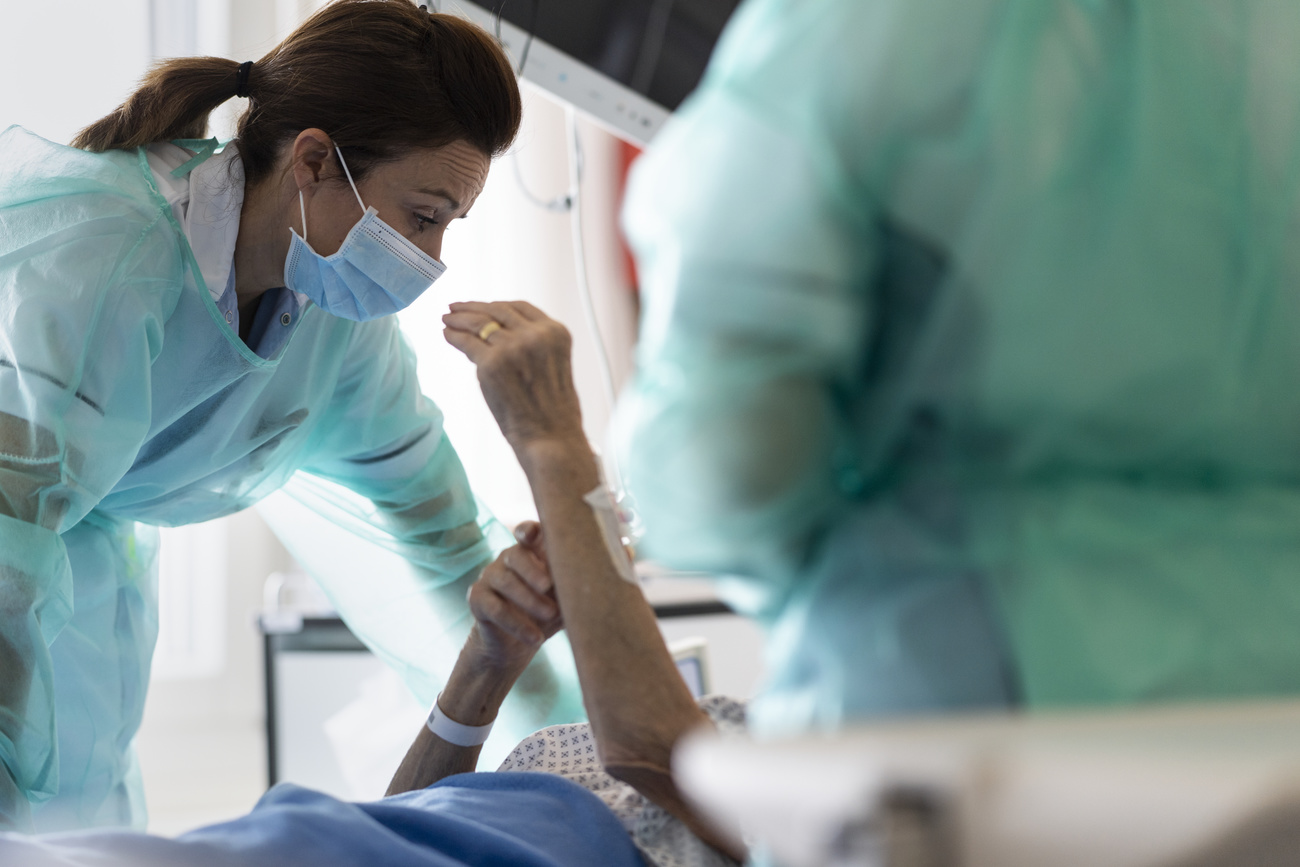
Swiss to pay lower health insurance premiums in 2022

Compulsory health insurance premiums are set to fall by 0.2% next year in Switzerland – the first decrease in 14 years.
The Federal Office of Public Health (FOPH) announcedExternal link on Tuesday that the average monthly health insurance premium for 2022 would cost CHF315.30 ($339). Depending on the canton, the cost of a premium is expected to vary between a decrease of 2.1% and an increase of 1.4%.
This represents an average reduction of 0.2% compared with 2021 and the first decrease since 2008. Over the past ten years health insurance premiums have risen annually by an average of 2.4%.
“The fall in the health insurance premium is very good news for the Swiss population,” Interior Minister Alain Berset told reporters in Bern.
Basic health insurance is compulsory for every resident in Switzerland, and many people opt to buy supplementary coverage.
Reducing reserves
Next year’s lower premiums are partly the result of health insurance companies reducing the financial reserves that they have built up over the years.
“The measures taken by the Federal Council (executive body) to encourage insurers to lower the level of reserves have proved to be effective,” the FOPH said on Tuesday.
A legal revision that came into force in June 2021 makes it easier for insurers to resort to voluntary reductions in reserves, the health office said.
“It also encourages them to calculate premiums as accurately as possible in order to avoid excessive reserves,” it added.
For 2022 the FOPH has approved a voluntary reduction in reserves worth CHF380 million. But this is just a small slice of insurers’ accumulated reserves, estimated at CHF12.4 billion.
“The Federal Council is of the opinion that it is possible and necessary to continue reducing reserves over the next few years without harming the solvency of insurance companies,” the FOPH said.
Pricey healthcare
Santésuisse, the umbrella organisation for health insurers, said it welcomed the lower premiums for 2022 but warned that healthcare costs would have to be trimmed to ensure premiums remain affordable.
Controlling Switzerland’s expensive healthcare system is a major issue. Due to demographic change and technical progress, healthcare costs will continue to increase, the government says.
Overall, the Swiss healthcare system is known for its excellent level of care, but it is also among the most expensive in the world. Switzerland spends about 12% of gross domestic product (GDP) on healthcare.

More
Swiss spend record 12% of GDP on health

In compliance with the JTI standards
More: SWI swissinfo.ch certified by the Journalism Trust Initiative





























You can find an overview of ongoing debates with our journalists here . Please join us!
If you want to start a conversation about a topic raised in this article or want to report factual errors, email us at english@swissinfo.ch.